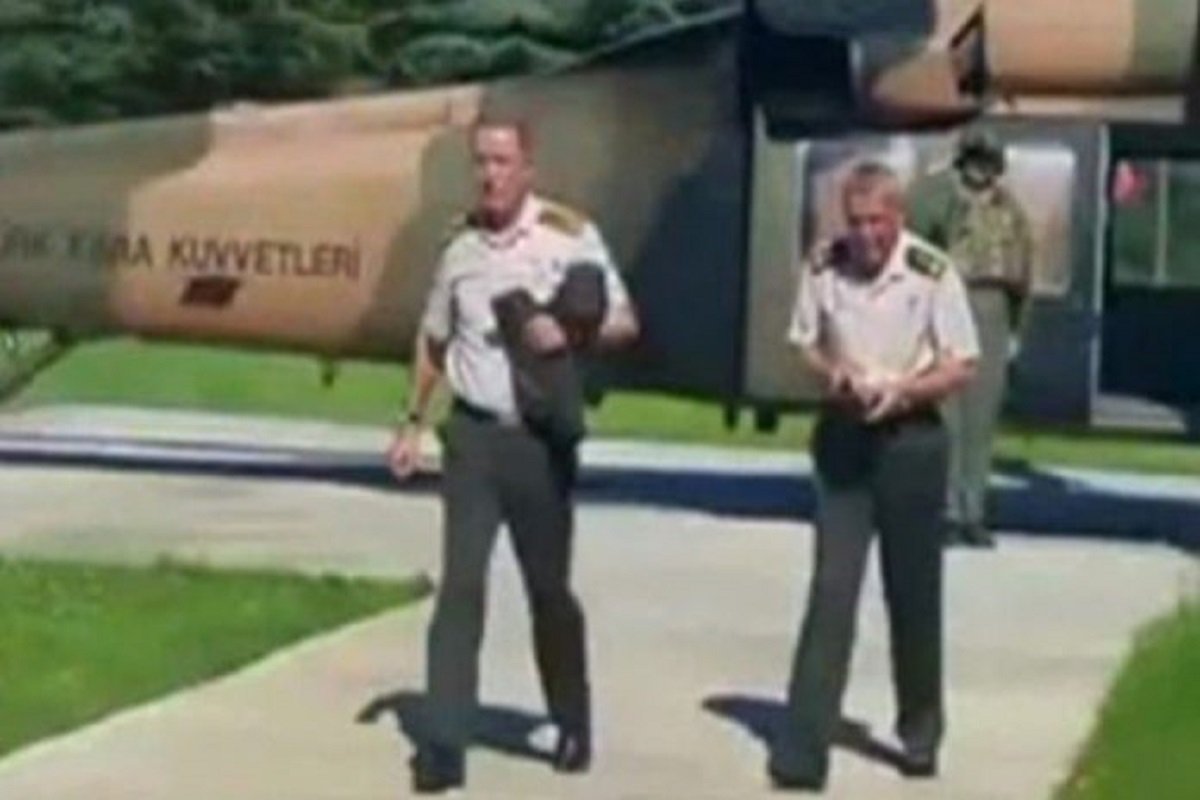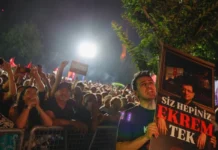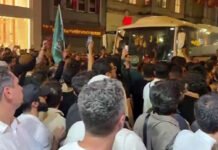
Maj. Gen. Mehmet Dişli, one of the key suspects in a trial concerning a controversial coup attempt in Turkey last year and brother of ruling Justice and Development Party (AKP) Deputy Chairman Şaban Dişli, said on Friday that he was taken to Akıncı Airbase in Ankara at gunpoint just as Chief of General Staff Gen. Hulusi Akar was, CNN Türk reported.
Denying the accusations against him, Dişli said: “I experienced the same fate as Chief of General Staff Gen. Hulusi Akar, and I was taken to Akıncı at gunpoint. There I worked as a secretary for the chief of general staff. I neither intermediated between anyone nor put pressure on the chief to participate in the coup attempt.”
Security sources claimed Akar was ordered by his private secretary, Maj. Gen. Dişli, to sign a coup declaration at gunpoint and read it out to the public. Upon his refusal to do so, a belt was tied around his neck and he was physically forced. The sources argue that force commanders were also held captive by their pro-coup secretaries and guards.
According to a t24 news website report on Friday, Dişli claimed he was with Gen. Akar from the beginning of the coup until to the end and that Gen. Akar might have misunderstood him under the influence of incidents.
Former Col. Uğur Kapan, who flew Gen. Akar and Maj. Gen. Dişli from Akıncı Airbase to Çankaya Palace during the failed coup, implied in court that Gen. Akar was part of the coup attempt.
“Akar said: ‘We acted early, we should have waited. We are disgraced’,” said Col. Kapan during a hearing at the Ankara 17th High Criminal Court, where 155 suspects including three civilians were in attendance in relation to what happened at the Army Aviation Command during the coup attempt.
Underlining that Maj. Gen. Dişli got in the helicopter with the permission of Gen. Akar, Kapan also said there were no scratches or signs of alleged torture caused by the putschists on Dişli’s neck when he boarded the aircraft.
Saying that he was exposed to heavy torture during his detention at police headquarters, Kapan also said his previous testimony was taken under torture by the police and prosecutors. Accordingly he recanted his testimony that he saw Adil Öksüz, one of the prime civilian suspects in the coup attempt, at Akıncı Airbase.
A total of 486 people accused of taking part in the coup attempt are standing trial. The suspects, who were thought to have received orders from Akıncı Airbase, were allegedly plotting to assassinate Erdoğan on the night of the coup attempt.
According to the Turkish government, Akıncı Airbase, northwest of Ankara, served as the headquarters for plotters, and the orders to bomb Parliament and overthrow Erdoğan were sent out from there.
Meanwhile, Odatv columnist Barış Terkoğlu suggested on Thursday that Turkey’s autocratic President Recep Tayyip Erdoğan approved a law permitting soldiers to go out in the streets against terrorist attacks on July 13, 2016, two days before a botched coup attempt on July 15, 2016.
Referring to the personnel law of the Turkish Armed Forces (TSK) that was published in the Official Gazette one day before the coup attempt, Terkoğlu asked in his column whether this law made it easier to carry out the planned coup attempt.
“One day before the July 15 coup attempt … that is July 14, 2016, the ‘TSK Personnel Law’ was published in the Official Gazette and became law. This is surprising because the 12th article of the law allows soldiers to go out into the streets against terror attacks. While previously governors were authorized to ask for help from military units, this authority was expanded to the Cabinet, that is, to the government. So soldiers around the country are allowed to go out in the streets with the approval of the government,” said Terkoğlu.
Underlining that the putschists on trial are defending themselves by saying, “The commander ordered us, we thought it was terrorism,” Terkoğlu argued the law made it possible even for police forces to be under the control of military forces just one day before the coup attempt, which, he wrote, showed that the coup was legally planned by someone before it happened.
The law made it easier for soldiers to go out into the streets, to enter houses and even to commit crimes when necessary. The only missing thing is the decision of the Cabinet, which proposed this law. That is the only thing that distinguishes the “coup” from a “response against terror,” added Terkoğlu.
Turkey survived a military coup attempt on July 15, 2016 that killed 249 people. Immediately after the putsch the ruling Justice and Development Party (AKP) government along with President Erdoğan pinned the blame on the Gülen movement.
Fethullah Gülen, who inspired the movement, strongly denied having any role in the failed coup and called for an international investigation into it, but President Erdoğan — calling the coup attempt “a gift from God” — and the government initiated a widespread purge aimed at cleansing sympathizers of the movement from within state institutions, dehumanizing its popular figures and putting them in custody.
Turkey’s Justice Ministry announced on July 13 that 50,510 people have been arrested and 169,013 have been the subject of legal proceedings on coup charges since the failed coup. (SCF with turkishminute.com)














